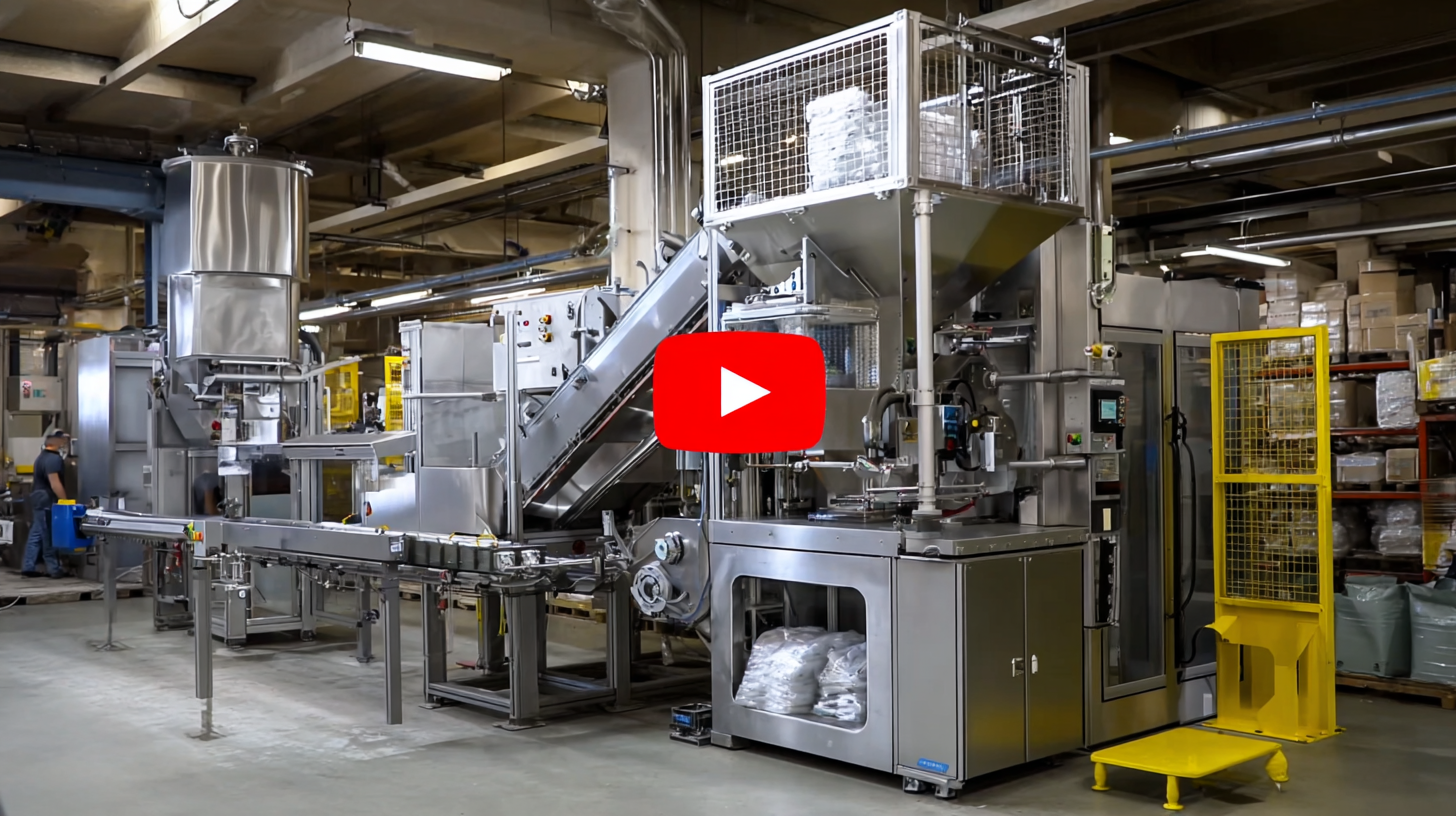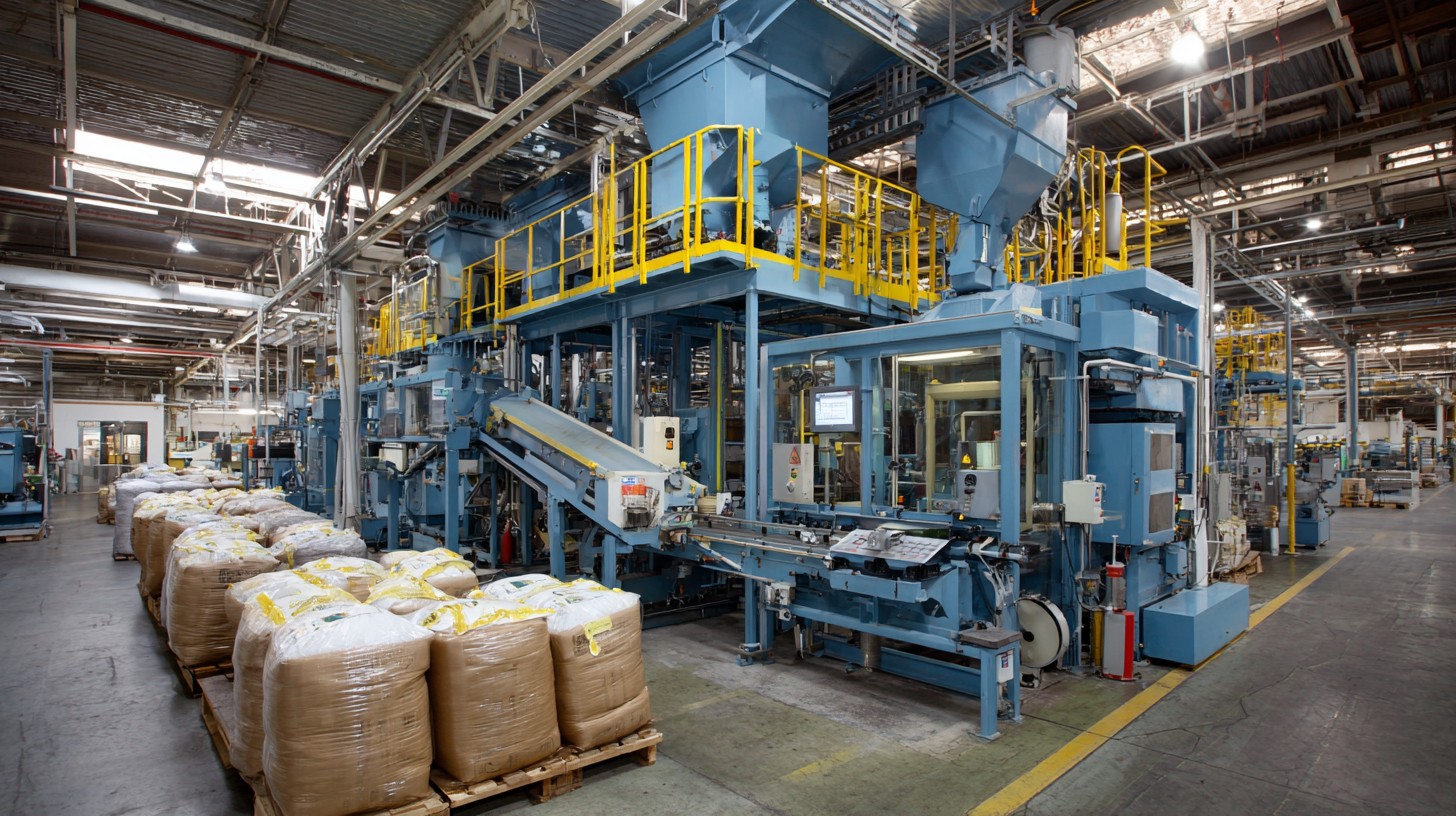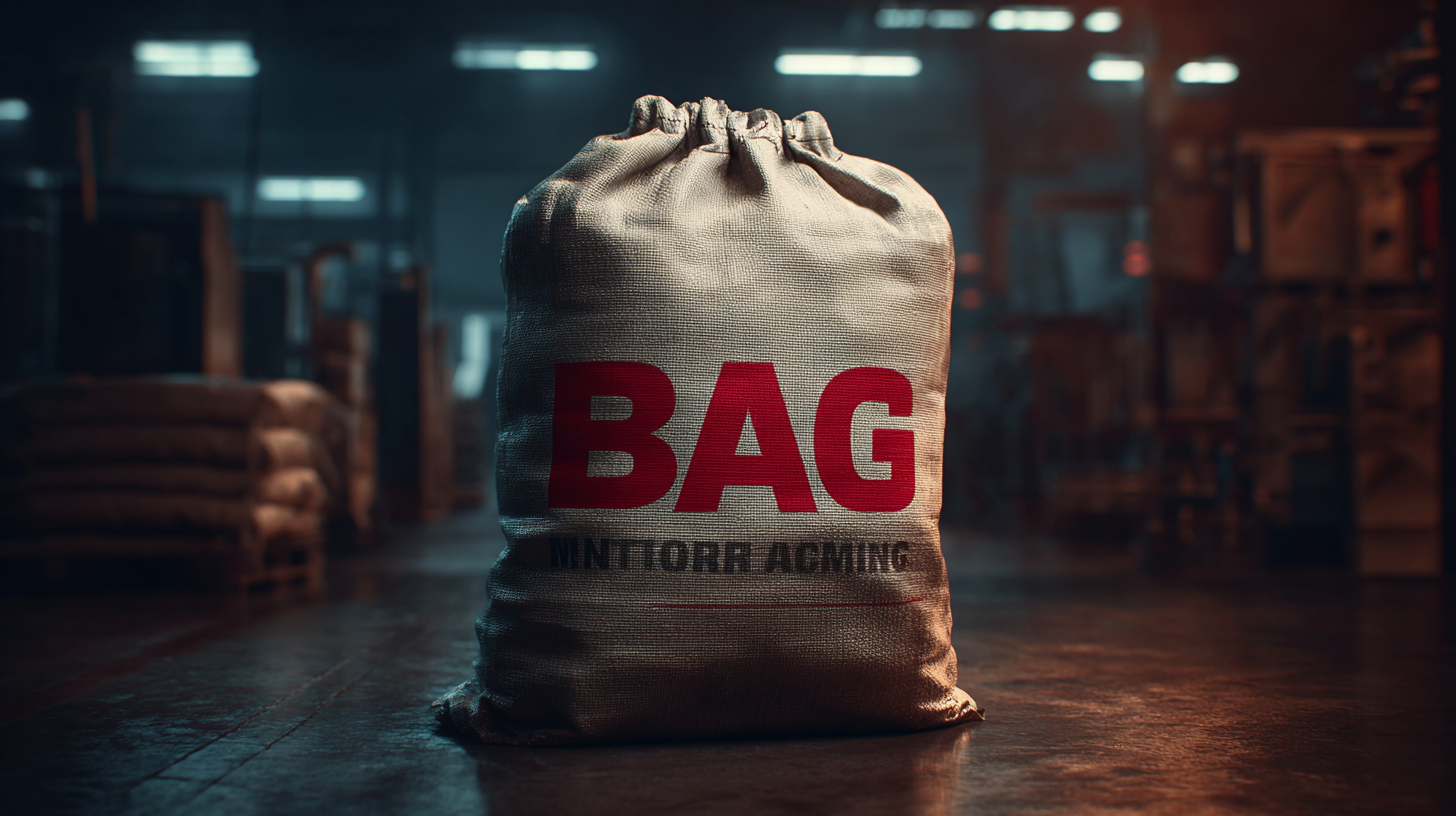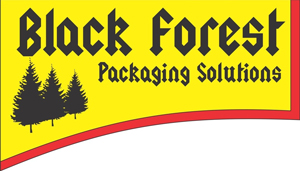Key Factors to Identify Quality Manufacturers for the Best Bagging Machines
In today's rapidly evolving packaging industry, the demand for efficient and reliable bagging machines has surged significantly. According to a report by MarketsandMarkets, the global packaging machinery market is projected to reach USD 50 billion by 2025, with a compound annual growth rate (CAGR) of 4.25%. As businesses strive to enhance productivity and streamline operations, selecting quality manufacturers of bagging machines becomes paramount. Factors such as technological advancements, material quality, and after-sales support are critical in determining the effectiveness of these machines in various applications. This ultimate guide aims to provide insights into identifying the key characteristics that distinguish top-tier manufacturers, ensuring that companies invest wisely in equipment that meets their specific packaging needs while optimizing their operational efficiency.

Key Considerations for Evaluating Bagging Machine Manufacturers' Capabilities
When evaluating bagging machine manufacturers, several key considerations come into play to ensure quality and reliability. First, assessing the manufacturer's experience and expertise in the field is crucial. Companies with a long-standing history in designing and producing bagging machines often have refined their processes and technologies, leading to better quality products. Inquire about their portfolio and request case studies or references from previous clients to gauge their competency and the performance of their machines in real-world applications.
Another significant factor is the flexibility and customization options offered by the manufacturer. Every business has unique requirements based on their product types and packaging needs. A quality manufacturer should be willing to collaborate and provide tailored solutions that cater to these specific demands. Additionally, consider the after-sales support and maintenance services provided. A reliable manufacturer will not only offer a robust product but also ensure their clients receive ongoing support, enhancing the machine's longevity and effectiveness in your operations.
Analyzing Industry Certifications: Ensuring Quality and Compliance in Manufacturing
When identifying quality manufacturers for bagging machines, understanding industry certifications is paramount. Certifications such as ISO 9001 ensure that a manufacturer adheres to quality management principles, optimizing their processes and enhancing product reliability. The upcoming ISO 9001 revision in 2026 will further integrate modern technologies like AI, benefiting manufacturers by streamlining their compliance with evolving standards. This emphasizes the need for manufacturers to stay ahead of industry trends and maintain stringent documentation practices.
Tips for manufacturers in this context include regularly updating their quality management systems to align with new certification requirements. This not only prepares them for future audits but also builds trust with clients looking for proven quality assurance. Additionally, manufacturers should consider adopting comprehensive data management solutions that comply with national and international guidelines, ensuring that every batch produced is documented meticulously, thereby mitigating potential risks related to non-compliance. Emphasizing sustainability in manufacturing processes can also strengthen a manufacturer’s position in the market, showcasing their commitment to responsible production alongside quality assurance.
Key Factors to Identify Quality Manufacturers for the Best Bagging Machines - Analyzing Industry Certifications: Ensuring Quality and Compliance in Manufacturing
| Manufacturer Region | Certifications | Quality Assurance Measures | Customer Satisfaction Rating | Years in Business |
|---|---|---|---|---|
| North America | ISO 9001, CE | Regular audits, in-house testing | 4.8/5 | 20 |
| Europe | ISO 9001, EN 13485 | Third-party inspections, extensive R&D | 4.6/5 | 15 |
| Asia | ISO 9001, GS | Lean manufacturing principles, automated quality checks | 4.5/5 | 10 |
| Australia | ISO 9001 | Continuous improvement, customer feedback loops | 4.7/5 | 8 |
The Role of Advanced Technology in Enhancing Bagging Machine Efficiency
The evolution of advanced semiconductor packaging technologies plays a crucial role in enhancing the efficiency of bagging machines, especially in industries driven by high performance and energy efficiency. As AI, high-performance computing (HPC), and other cutting-edge technologies advance, the demand for robust, efficient semiconductor components becomes increasingly significant. These advancements allow bagging machines to perform at optimal levels, ensuring precise packaging with reduced energy consumption.

Moreover, companies like Amazon are actively investing in the future of industrial innovation. With its $1 billion Industrial Innovation Fund, Amazon is set to support emerging technology firms in 2024, focusing on those that introduce revolutionary advancements in manufacturing processes. This infusion of capital will likely propel the development of smarter bagging machines, which will incorporate sophisticated semiconductor technologies, ultimately leading to enhanced operational efficiency and sustainability in production environments.
The synergy between advanced semiconductor packaging and innovative funding initiatives is paving the way for a new era in industrial automation.
Supply Chain Reliability: Assessing Manufacturers’ Global Reach and Production Capacity
When selecting a manufacturer for bagging machines, understanding their supply chain reliability is crucial. A manufacturer with a global reach can ensure that your production needs are met consistently, regardless of geographical or political disruptions. Assessing a manufacturer's ability to source materials and components from multiple locations not only enhances flexibility but also minimizes risks associated with single-source dependencies. This diversity can keep your operations running smoothly during uncertainties that may affect local suppliers.
In addition to global sourcing capabilities, it is essential to evaluate the production capacity of potential manufacturers. A manufacturer that possesses robust production facilities and advanced technology can significantly impact your operational efficiency. High production capacity ensures that you can scale up quickly in response to increasing demand without sacrificing quality. Furthermore, manufacturers with established quality control processes are more likely to deliver reliable and consistent products, reinforcing the importance of evaluating both their reach and their ability to meet your specific manufacturing requirements.

Customer Reviews and Case Studies: Measuring Satisfaction and Performance in Bagging Solutions
When selecting a manufacturer for bagging machines, customer reviews and case studies play a pivotal role in assessing product quality and operational performance. Real-world experiences shared by users provide invaluable insights into how these machines perform under various conditions. Customers often highlight key features such as speed, accuracy, and reliability, which are essential for efficient bagging processes. By analyzing the feedback, potential buyers can gauge not just the technical specifications of the machines, but also how they translate into everyday efficiency and productivity.
Case studies further enrich the evaluation process by showcasing the impact of specific bagging solutions in different industries. These narratives illustrate the challenges faced by businesses and how chosen manufacturers met or exceeded expectations. Such documented successes allow prospective clients to understand the potential return on investment and operational enhancements they could experience. By focusing on customer feedback and detailed case studies, manufacturers can better position their products and address the needs of their target markets, ensuring they deliver value through superior bagging solutions.
